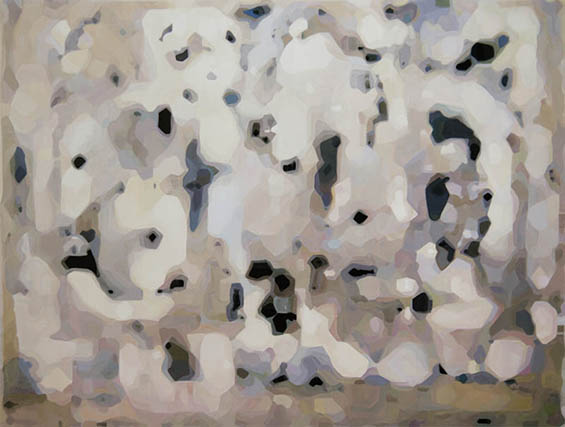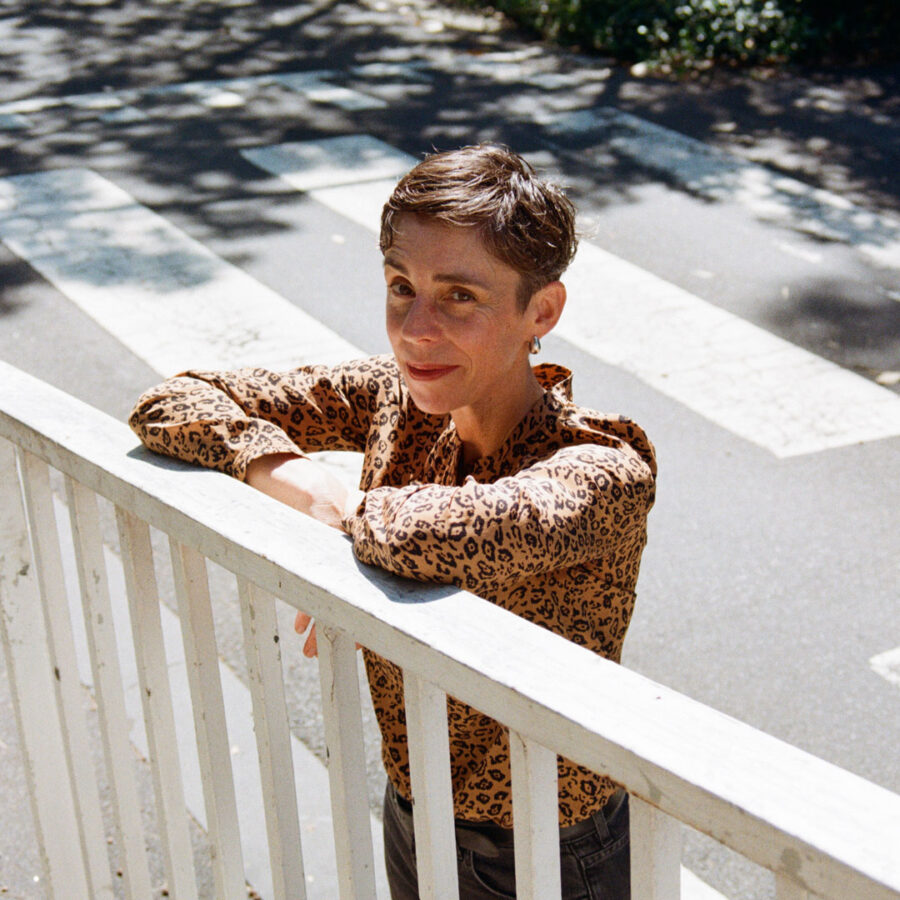‘Foul-Mouthed Tirade’: Mark Latham at the Melbourne Writers Festival

How do you shock an audience at a literary festival? The illustrious guests of this year’s Melbourne Writers Festival have been largely overwhelmed by Mark Latham and his many interlocutors. The ground had been tilled for a feisty session when Latham took to the stage with Jonathan Green on the weekend. The former leader of the Australian Labor Party had just resigned from his position as a columnist at the Australian Financial Review and the ripples of anger about his increasingly vicious tirades against high profile women and transgender people were breaking like waves. Green later reported that Latham had greeted him in the festival Green Room with a too-firm handshake, a threatening token of his physicality, and promised they would rumble before the audience.
Rumble they did, although Latham gave Green few opportunities for Green to return fire, or even to finish his questions. As Latham hectored Green, he used the stage as a pulpit to rail against lefty feminists, baggers, wankers, and sundry antagonists. His answers to audience questions were rude, aggressive and vulgar. There were, apparently, abusive sledges that were too defamatory to repeat. This behaviour was not, the Melbourne Writers Festival tweeted, ‘the respectful conversation that we value’.
Latham’s offences against respectful conversation were many but the prim charge of offensive language that appeared in most of the reports of the sessions stood out. ‘So let’s get right into it,’ Latham said. ‘Fuck, cunt, poo, bum.’ Fuck, cunt, poo, bum: it’s a string of words to make a naughty schoolkid giggle. Is that language really too strong for the afternoon crowd at a writers festival? How polite must a festival guest be? When Latham was called to account for his language by Green he was unrepentant. ‘This is how I talk in the western suburbs of Sydney, in the pub, with my mates at sporting events, and if you don’t like it you can fuck off. OK?’
There is something odious about a man with a parliamentary pension and privileged media access casting himself as the avatar of working class Western Sydney, as Latham has done so frequently. Still, he is correct to claim that outer suburban voices aren’t heard often enough in contemporary culture. Ironically, his bullyboy festival performance just bolstered the unhelpful stereotypes about the western suburbs that drown out expressions of the diverse identities that flourish beyond the inner city.
Back to that bad language: not only was Latham speaking the kind of language one hears at the pub, it’s also the language one hears frequently onstage at the theatre and encounters as a matter of course in literary fiction. His manner was certainly belligerent but how can it be that some usages are acceptable when confined to works of art, but not in public discussion? As Jeff Sparrow argues in New Matilda the focus on Latham’s rudeness ‘depoliticises the offence taken by many at his bigotry’. If Latham’s low level profanity really does merit rebuke, we may need to brace ourselves for some grimly respectful conversations about art and obscenity in the future.
Respectful conversation is a synonym for liberal debate and models the polite exchange prefered in fora such as writers festivals and Q&A. In those arenas, the maxim ‘I don’t agree with what you say but I’ll defend to the death your right to say it’ has the status of law. Play fair. Don’t lose your cool. Say what you like – but say it nicely. Sydney’s Festival of Dangerous Ideas typifies this commitment to a kind of paradox: the civilised debate of divisive concepts. Respect your audience, respect your opponents. Does such control and detachment come at a cost? It’s not hard to think of radical – and not so radical – thinkers whose careers turned on flouting such rules. If the reactions to Latham’s blasts are anything to go by, deviations from the conventions of civilised debate are more controversial than any available position on fat acceptance, shame culture, and censorship. There may be dangerous ideas out there – but the pendulum of public opinion appears presently to be weighted against tirades, slanging matches, jeremiads, impassioned debate, fierce arguments, shitfights, aesthetic revolutions, walkouts, insult and ideas that divide rather than unite.
In our first essay this week, Sunil Badami grapples with Malcolm Knox’s fifth novel, The Wonder Lover, an allegory on love, truth and identity that relies on a man with not one but three wives for its development. It’s an outlandish plot that challenges the limits of plausibility. The characters may not question the scenario in which they find themselves but the reader certainly does. And so, writes Badami,
The Wonder Lover constantly forces us, suspended between disbelief and implausibility, to keep questioning our own ideas of love, family, truth, beauty – and, in a way many novels do not, narrative itself.
Our second essay is by Andrew McCann, who writes on Imperium, the first novel by Swiss author Christian Kracht to appear in English translation. McCann’s essay takes in the sweep of Kracht’s career and the critical controversies that have attended the publication of each of his four novels. He writes:
Kracht works with a lightness of touch and a sort of pop-culture sensibility that has enabled critics to describe him as postmodern. And yet there is something unsettling in the way in which he engages with world-historical processes and dynamics. His work embodies a kind of dissidence that doesn’t lend itself to conventional political categories. And if not conventional political categories, then what? It isn’t hard to see why his work might unsettle a certain sort of critical sensibility.
From the Archive this week turns to another Labor leader, former PM Julia Gillard, currently in the news for her change of heart on marriage equality. In October 2013 Kerryn Goldsworthy reviewed five volumes on Gillard and the toxic misogyny that emerged during her time in office. Her essay is a kind of pre-emptive rejoinder to Latham’s paranoid assertions about the ‘howls of complaint’ his attacks women provoked:
Reading and thinking about too much of this kind of stuff, if you are a woman, can leave you psychologically battered and prey to despair. When you read, take notes and meditate on five volumes of this testimony and evidence of masculine oppression, suppression, repression, stalking, humiliation and naked hatred of women, you can feel it doing you damage. Even – perhaps especially – with the best writing here, I have sometimes felt as though I were wading through a piranha-infested swamp of raw sewage.
Coming soon: James Ley on Christos Tsiolkas, Sophia Barnes on three first books, Lucy Sussex on George Eliot, Emmett Stinson on literary magazines, and Melinda Harvey on Elena Ferrante.
